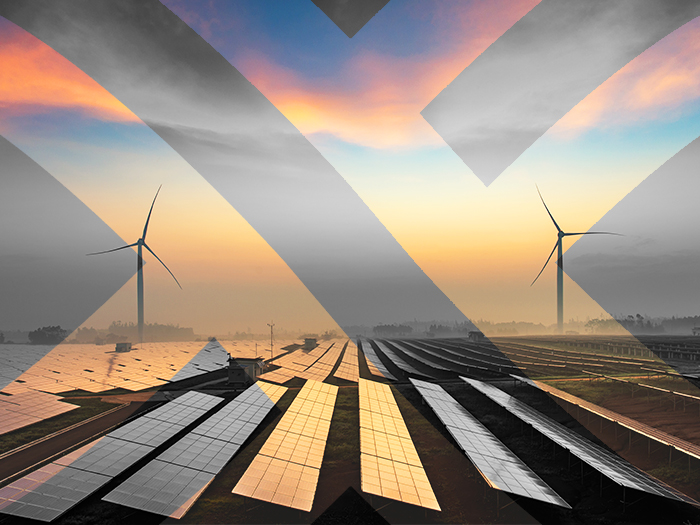News
better business decisions
Posted 9 months ago | 3 minute read

Renewable energy is not being rolled out fast enough: Climate Change Advisory Council Ireland
The Climate Change Advisory Council Ireland has published its Annual Review of the Electricity Sector 2025.
Published on 30 April, the report notes that in 2024, electricity emissions fell by approximately 7% relative to 2023, reaching 6.3MtCO2—the lowest level since record-keeping began in 1990. This was driven by a continued decline in the use of coal for electricity generation, coupled with a rise in imported electricity. But it said renewable energy is not being rolled out fast enough and as a result emissions are currently projected to exceed the sectoral emissions ceiling, even in the most optimistic scenario.
By the end of 2024, the total utility-scale renewable capacity in Ireland was 5.7 GW, with wind power contributing the majority at 4.9 GW. While 1.6GW of onshore wind and solar projects received planning permission during 2024, only an additional 0.5GW of new utility-scale renewable capacity was connected, which is significantly below the 1.8GW annual average increase in capacity that is required to meet 2030 targets. If all these projects progress through to development, they could deliver 15% of the increase in onshore renewable capacity required to achieve the 2030 targets. In addition it noted that “insufficient investment” in the electricity grid means that some renewable energy generated cannot be used. In 2024, the dispatch-down energy from wind resources was 1,266GWh (10.1% of the total available wind energy) and 39GWh from solar resources (5.3% of the total available solar energy).
The report noted that many onshore wind projects will need to renew their existing planning permission by 2030 and are likely to upgrade their wind turbines. As these projects already have grid connections, it called on local authorities and other decision-makers to consider their retention while taking account of legal constraints. It also urged the industry to accelerate construction of the 2GW of onshore wind projects that have already received planning permission.
To help reduce energy costs for all types of consumers and shift electricity consumption away from peak times, the report called on the government to implement the legislative changes and licence modifications required to facilitate access to smart metering data as an immediate priority.
Noting that the CRU has extended the deadline to 1 June 2026 for the introduction of standard dynamic price contracts to the retail electricity market, the Council is calling on the CRU and electricity suppliers to offer a standard dynamic price contract to customers as soon as possible, in line with their legislated requirements. It also said ICT solutions to inform customers about their real-time electricity consumption and pricing are needed to empower customers to reduce costs. It also said an enhanced emissions reporting scheme for large energy users must be operational by the end of 2025.
The report also noted that storms such as Darragh and Éowyn have exposed how vulnerable Ireland’s power infrastructure is to extreme weather events. The report recommended that the government undertakes urgent work to ensure that the electricity network can withstand and rapidly recover from the impacts of extreme weather events and move towards a more systemic approach of adapting to climate change.
Data centres remain a primary driver of increasing electricity demand, accounting for 21% of Ireland’s total usage of metered electricity in 2023, up from just 5% in 2015. The Council reiterated its previous call for a legislative mechanism to ensure that new connections align with renewable capacity expansion and to restrict new gas-powered ‘islanded’ data centres.

The rise of the demand side | Global Energy Trends 2025 and Beyond
f climate change, GridBeyond’s latest white paper “The rise of the demand side | Global Energy Trends 2025 and beyond” offers an analysis of the driving forces, emerging trends, and policy frameworks influencing the future of energy systems.
Learn more





